Why Use a VPN and How to Get It for Free
A Virtual Private Network (VPN) is a secure and private network that encrypts your internet traffic and hides your IP address. It’s essential to use a VPN to protect your online privacy, especially when using public Wi-Fi networks or accessing sensitive information. VPNs can also bypass internet censorship and geo-restrictions, allowing you to access websites and services that are not available in your region.
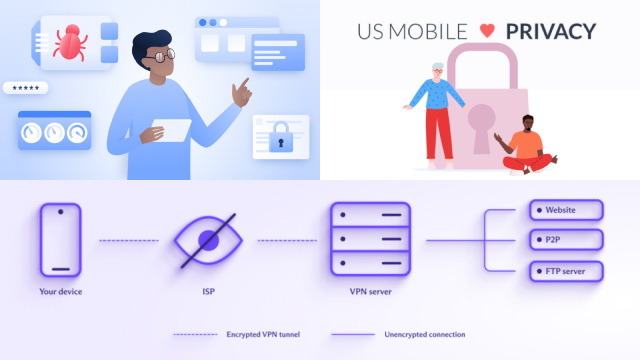
Many VPN providers offer free plans, but it’s important to be cautious when choosing a free VPN as they may collect and sell your data or slow down your internet speed. To get a VPN for free, you can try using the built-in VPN feature in your web browser or use a free trial offered by reputable VPN providers.
Another option is to use open-source VPN software, such as OpenVPN, that allows you to set up your own VPN server for free. However, this requires technical knowledge and may not be suitable for everyone.
In conclusion, using a VPN is crucial to protect your online privacy and security. While free VPNs are available, it’s important to do your research and choose a reputable provider to ensure the best protection for your sensitive information.
Free VPNs: Pros and Cons to Consider
Free VPNs are becoming increasingly popular due to the rising concerns about online privacy and security. While they can offer many benefits, it’s important to consider the pros and cons before choosing a free VPN provider.
Pros:
- Cost: Free VPNs are a great option for those who can’t afford a paid VPN subscription.
- Easy to use: Most free VPNs have a user-friendly interface and are easy to set up.
- Access to geo-restricted content: Free VPNs can help you bypass internet censorship and access restricted content.
Cons:
- Limited features: Free VPNs typically offer limited features compared to paid VPNs, such as a smaller selection of server locations and slower speeds.
- Security risks: Free VPNs may collect and sell your data to third parties, putting your online privacy at risk.
- Advertisements: Free VPNs often display advertisements, which can be annoying and intrusive.
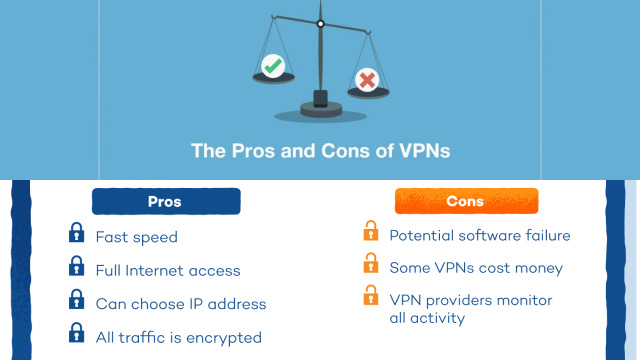
In conclusion, free VPNs can be a great option for those on a budget or looking to access restricted content. However, it’s important to be aware of the potential security risks and limitations that come with using a free VPN.
How to Choose a Reliable Free VPN Provider
Choosing a reliable free VPN provider can be challenging as there are many options available on the market, and not all of them are trustworthy. Here are some factors to consider when selecting a free VPN provider:
- Privacy policy: Look for a VPN provider with a clear and transparent privacy policy that states they do not collect or sell user data.
- Server locations: Check if the VPN provider has servers in the countries you need to access, especially if you’re trying to bypass geo-restrictions.
- Speed and bandwidth: Free VPNs often have speed and bandwidth limitations, so make sure to choose a provider that offers decent speed and data limits.
- Customer support: A reliable VPN provider should have an efficient customer support system, including a knowledgeable support team and a user-friendly knowledge base.
- Security features: Look for a VPN provider that offers strong encryption, such as AES-256, and has other security features like a kill switch and DNS leak protection.
In conclusion, selecting a reliable free VPN provider can be a daunting task, but by considering these factors, you can choose a provider that meets your privacy and security needs. Remember to research thoroughly and read reviews before making a decision.
Free VPNs vs. Paid VPNs: What’s the Difference?
The primary difference between free VPNs and paid VPNs is the level of security and features they offer. While free VPNs can be a great option for those on a budget, they often come with limitations.
One of the main differences between free and paid VPNs is the number of servers available. Paid VPNs typically have a much larger server network than free VPNs, which means you have more options for server locations and faster connection speeds.
Paid VPNs also tend to offer stronger encryption, more advanced security features, and better customer support. Free VPNs may not have the resources to offer these features, leaving you vulnerable to online threats.
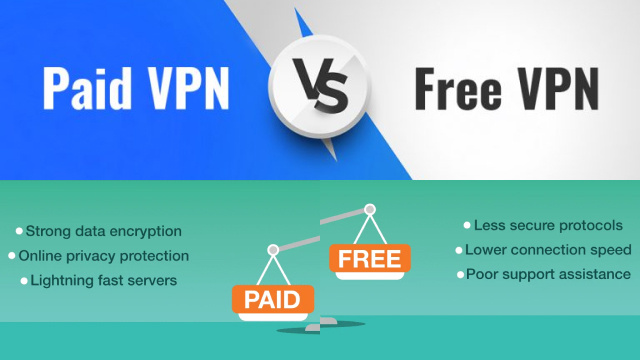
On the other hand, free VPNs are a good option for those who only need basic security and don’t want to pay for a VPN service. While free VPNs may have limitations, they can still offer some level of privacy and security.
In conclusion, both free and paid VPNs have their advantages and disadvantages. It ultimately depends on your individual needs and budget. If you need advanced security features and reliable customer support, paid VPNs may be the better option. However, if you’re on a tight budget and don’t need the extra features, a free VPN may be suitable for your needs.
How to Install a Free VPN on Your Device
Installing a free VPN on your device can be a quick and easy process, depending on the VPN provider you choose. Here’s a general guide to installing a free VPN:
- Research and choose a free VPN provider: Do your research and choose a VPN provider that offers the features you need and has a good reputation.
- Download and install the VPN software: Once you’ve chosen a VPN provider, visit their website and download the software for your device.
- Install the software: Follow the installation instructions provided by the VPN provider. The process may vary depending on your device and operating system.
- Launch the VPN software: Once the software is installed, launch it and sign in to your account.
- Select a server location: Choose a server location that meets your needs, such as one that’s close to your physical location or one that allows you to access geo-restricted content.
- Connect to the VPN: Click the connect button to establish a VPN connection.
In conclusion, installing a free VPN on your device can be a simple process if you choose a reputable VPN provider and follow the installation instructions. Remember to choose a server location that meets your needs and regularly update your VPN software to ensure you’re using the latest security features.
Common Issues with Free VPNs and How to Fix Them
Free VPNs are a popular option for those looking to protect their online privacy and security without spending money. However, free VPNs can come with their own set of issues. Here are some common issues with free VPNs and how to fix them:
- Slow connection speeds: Free VPNs often have limited bandwidth, which can result in slow connection speeds. To fix this issue, try connecting to a server closer to your physical location or upgrading to a paid VPN with faster speeds.
- Limited server locations: Free VPNs may have a limited number of server locations, which can make it difficult to access geo-restricted content. To fix this issue, consider upgrading to a paid VPN with more server locations.
- Advertisements: Free VPNs may display ads to generate revenue. To fix this issue, consider using an ad blocker or upgrading to a paid VPN that doesn’t display ads.
- Data logging: Some free VPNs may log your data, defeating the purpose of using a VPN for privacy. To fix this issue, choose a reputable VPN provider that has a no-logging policy.
In conclusion, while free VPNs can be a great option for those on a budget, they can come with their own set of issues. By understanding these issues and taking steps to fix them, you can ensure that you’re using a free VPN that’s reliable and secure.
Alternatives to Free VPNs: Free Trials and Money-Back Guarantees
While free VPNs can be a convenient option for those on a budget, they may not offer the same level of security and features as paid VPNs. An alternative to using a free VPN is to take advantage of free trials and money-back guarantees offered by paid VPN providers.
Many paid VPNs offer free trials ranging from 3 to 30 days, allowing you to test the service before committing to a subscription. This can be a great way to evaluate the security, speed, and features of a VPN without spending money.
Another option is to look for a VPN with a money-back guarantee. Many VPN providers offer a 30-day money-back guarantee, giving you a full refund if you’re not satisfied with the service.
Using free trials and money-back guarantees can be a great way to test the quality of a paid VPN without risking any money. Additionally, paid VPNs typically offer more advanced security features, a larger server network, and reliable customer support, making them a worthwhile investment for those looking for the highest level of privacy and security online.
Protecting Your Privacy and Security with a Free VPN
In an age where digital privacy is paramount, utilizing a free VPN (Virtual Private Network) can be a valuable tool for safeguarding your online activities. VPNs work by encrypting your internet connection and routing it through servers in different locations, effectively masking your true IP address. While many people opt for paid VPN services, free VPNs can offer a level of protection without the financial commitment.
One of the primary benefits of using a free VPN is the added layer of security it provides when connecting to public Wi-Fi networks. Public Wi-Fi is often unsecured, making it a hotspot for potential cyber threats. A VPN ensures that your data remains encrypted and confidential, protecting you from hackers and data breaches.
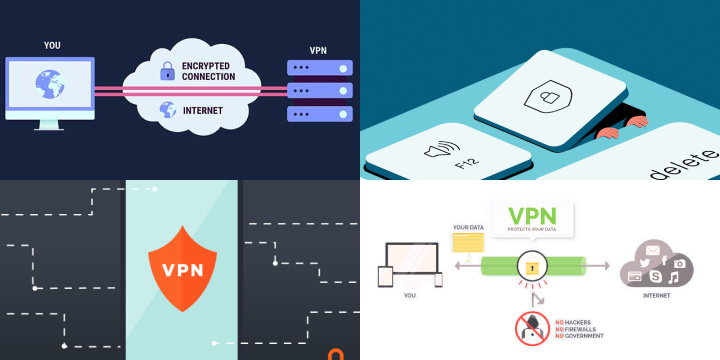
Furthermore, a free VPN can help you bypass geo-restrictions, enabling access to region-locked content and websites. This is particularly useful for travelers or those living in countries with strict internet censorship.
However, it’s essential to choose a reputable free VPN provider. Some free VPNs may compromise your privacy by logging your data or displaying ads. Careful research is necessary to select a trustworthy service that prioritizes user privacy.
In conclusion, a free VPN can be a valuable asset in preserving your online privacy and security. By encrypting your internet connection and providing anonymity, it offers a viable solution for users seeking protection without a financial commitment.
Conclusion: Get Started with a Free VPN Today
In today’s digital age, online privacy and security have become increasingly important. A free VPN can be a great option for those looking to protect their online activities without spending money. By using a free VPN, you can hide your IP address, encrypt your internet traffic, and access geo-restricted content.
While free VPNs may have their limitations and drawbacks, they can still provide a basic level of online security and privacy. Plus, many reputable VPN providers offer free trials and money-back guarantees, giving you the opportunity to test their service before committing to a subscription.
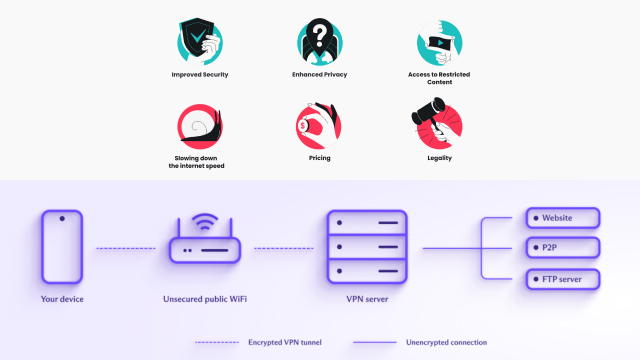
To get started with a free VPN, research and choose a reputable VPN provider that offers a free plan or trial. Follow the installation instructions provided by the VPN provider and choose a server location that meets your needs.
In conclusion, using a free VPN can be a great way to protect your online privacy and security without breaking the bank. By choosing a reliable VPN provider and following best practices, you can enjoy a safer and more secure online experience.